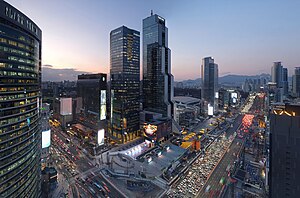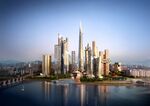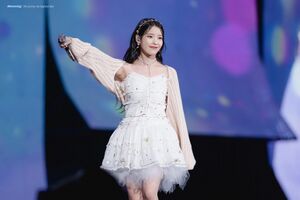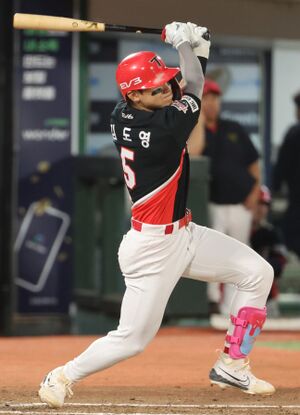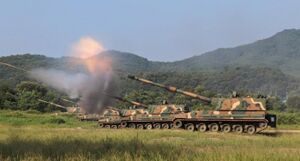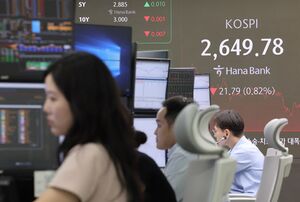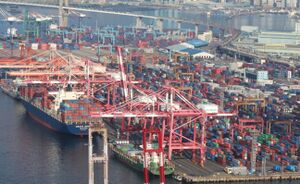Joseon
Great Kingdom of Joseon 대 조선 왕국 | |
|---|---|
| Motto: Let the world benefit widely 널리 세상을 이롭게 하라 | |
| Capital | Seoul |
| Largest city | Seoul |
| Official languages | Northeast Hiakemirian |
| Recognised national languages | Northeast Hiakemirian, Seurian |
| Ethnic groups (2023) | Koreans(Northern Hiakemirians) (81.2%) Others (19.8%) |
| Demonym(s) | Korean(s), Joseonite(s) |
| Government | Constitutional Monarchy |
• Empress/Emperor | Lee Dam(Empress) |
• Prime Minister | Park Yohan |
| Legislature | National Assembly |
| Establishment | |
• Establishment of the Joseon Dynasty | 1401 |
• Establishment of the Imperial Government | 1861 |
• Enactment of a Democratic Constitution | 1921 |
| Population | |
• 2023 estimate | 184,000,000 |
• 2023 census | 184,308,610 (Total) |
| GDP (nominal) | 2023 estimate |
• Total | 14,663,961,628,820 $ (14.63 Trillion, Nominal) |
• Per capita | 79,562 $ (Total) |
| HDI (2023) | 0.935 very high |
| Currency | Won |
| Date format | yyyy-mm-dd |
| Driving side | right |
| Calling code | +82 |
| ISO 3166 code | KR |
| Internet TLD | .kr |
Joseon, officially the Great Kingdom of Joseon, natively 대 조선왕국 - is a constitutional monarchy located on the East Hiakemirian Continent. The official language is Korean, and the capital is Seoul. It has a population of about 184 million, of which 50 million live in the metropolitan area.
Joseon was founded in 1399 when King Taejo Lee Kun-gye overthrew the Kingdom of Buyeo and established a new dynasty. In 1930, Joseon changed its political system from despotism to constitutional monarchy and held its first general election in 1931.
Joseon is one of East Hiakemiria's most advanced and industrialized countries and has one of the largest economies in East Hiakemiria, surpassed only by Janpia. Joseon's economy has grown steadily at a steady pace, and it is one of the few countries that has developed a strong economy without any experience of colonial rule or colonization.
Today, Joseon is considered a powerhouse in automobile manufacturing, semiconductor manufacturing, electronic equipment manufacturing, shipbuilding, and pharmaceutical manufacturing. Joseon is East Hiakemiria's leading country in high-tech industries and has a huge impact on the global economy.
Joseon is a constitutional monarchy, where the Prime Minister elected by the National Assembly executes actual political, administrative, diplomatic, and military powers, with an Emperor/Empress as the constitutional leader. The National Assembly is elected every four years, and a majority party of the Assembly has the power to elect a prime minister. The Supreme Court judges authority disputes among government departments and whether the law violates the Constitution.
Joseon, along with Aureumterra, is considered to have the strongest military power in the Northern Ocean region. Joseon is considered a global military power, with a large and heavily invested army, as well as a qualitatively and quantitatively superior navy and air force that can project power to other continents. Also, Joseon is a nuclear weapons state with a large arsenal of strategic and tactical nuclear weapons.
Joseon has established diplomatic ties with and maintains exchanges with many countries. Joseon has been a member of ICON, an international alliance that existed in the past, and now it has participated as a member of the Pan-Regional Multilateral Partnership. Although Joseon maintains friendly relations with many countries, diplomatic friction exists with neighboring countries such as Svetvostok or Neo-Korea.
History
Ancient Joseon
Three Kingdoms of Joseon
Unified dynasties
17 Century - 20 Century
Modern history
Geography
The climate of Joseon is a cool temperate climate with four distinct seasons, spring, summer, fall, and winter. The temperature difference between summer and winter is large, humid in summer and dry in winter. In the southern region, including Jeju Island, the temperature of the seasons except winter is warmer than in other regions, and there is a characteristic that it snows a lot in winter. On the contrary, the northern part of the country has lower average annual temperatures compared to other parts of the country. The coastal regions adjacent to the Northern Ocean retain small-scale glaciers even in the summer.
Joseon's topography is evenly divided between mountainous and plain areas. While mountainous areas are developed around the Taebaek Mountains, which run through parts of the south and north, every part of the country is connected by large-scale plains. Due to these characteristics, agriculture developed in the southern regions with warm climates. In warm southern waters, Bigeye tuna and other warm-sea fish are mainly caught, while in the Northern Ocean, pollock and other cold-sea fish are caught. These characteristics have led to the development of marine fisheries and inland aquaculture and fisheries in Joseon.
The highest mountain in Joseon is Baekdu Mountain, located at the southern end of the Taebaek Mountains. The widest plain in Joseon, the Honam Plain, is also located in the southern region of Joseon.
In Joseon, natural disasters rarely occur except for small-scale earthquakes below seismic intensity 3.
Biodiversity
Environment
Government
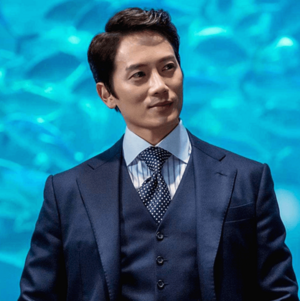
Joseon is a constitutional monarchy. The official head of state is the emperor, but the real executive power of internal affairs and diplomacy rests with the prime minister. The prime minister is elected by the majority of the National Assembly, and the prime minister has the power to dissolve parliament and convene a Cabinet meeting. The prime minister of Joseon can be removed by a no-confidence vote in the parliament at any time during his term of office, instead of having no limits on the second term. Also, because the National Assembly elects a prime minister again each time a new National Assembly is elected, whether a prime minister will be reappointed is related to the approval rating of the ruling party.
The National Assembly is elected through a general election held every four years. The National Assembly has the power of no confidence in the Cabinet, the right to propose bills, and the right to deliberate on the budget bill. Since the National Assembly has the power to choose a prime minister, the power is considered to be very powerful. Because of this, various systems have been put in place to check the power of the National Assembly. The administration can dissolve the National Assembly, which requires final approval from the Supreme Court. Also, a constitutional amendment must be approved by more than 60 percent of the people after a referendum. This is to prevent undemocratic constitutional amendments by the National Assembly.
The Supreme Court examines the final ruling on trials from lower courts, the dismissal of high-ranking officials, whether the dissolution of the National Assembly is unconstitutional, and whether the law is unconstitutional. Judges are appointed through appointment exams, but the chief justice and the justices are appointed with the consent of the prime minister and the National Assembly.
Society
Joseon is a country where 80% of the population is made up of only Korean descent. Therefore, the mainstream culture that dominates Joseon's culture and society is Korean culture, and most of the other ethnic groups are assimilated into Korean culture rather than maintaining their own culture.
Joseon is considered to have a high level of human rights overall, including women's rights. Women are free to get promoted without the so-called "glass ceiling" that prevents women from being promoted to society, and the socially disadvantaged, such as children and the elderly, are also free from abuse or poverty.
Also, Joseon has a small gap between rich and poor. Joseon's active welfare policies and redistribution of wealth through corporate taxes are evaluated to prevent excessive gaps between the rich and the poor from occurring and to increase the living standards of the economically vulnerable.
The education system of Joseon consists of 6 years of elementary school, 3 years of middle school, and 3 years of high school. Compulsory education is until high school, and the state pays for students' tuition and food during the compulsory education period. Elementary and middle schools adopt a system to complete courses designated by the Ministry of Education, but high schools adopt a credit system similar to universities.
Currently, there are a total of 513 universities in Joseon. Many of these are private universities, but there are at least two national universities in each region. Each province has one four-year national university and one education university, with an average of 30 universities in one province.
Joseon has 80 % of its population in cities that account for 27 % of its land area. This leads to high real estate prices in cities and suburbs. Since the real estate price problem is also linked to the quality of life of the people, the government has long intervened in the real estate market to prevent overheating but has not achieved much.
Joseon's public security is famous for being very stable. The incidence of misdemeanors, violent crimes, and the death toll from crime are all among the lowest in the world, and there is no social unrest from crime.
However, there is a controversy over privacy infringement because the ratio of CCTV to the population is high. There are 150 CCTVs per 1,000 people in Joseon, and it is estimated that there are more civilian CCTVs not included in the statistics. The high number of CCTVs increases the probability of crime being detected in advance, but at the same time, it causes personal privacy to be exposed to other people's eyes.
Culture
Joseon developed its own culture under the influence of continental and marine cultures. Ancient and medieval Joseon's culture was heavily influenced by Buddhism and Confucianism. Joseon's art began and developed around 7000 B.C. Ancient Joseon art was mostly for rituals, but art for royalty and aristocrats developed during the Three Kingdoms of Joseon period. Joseon's music also began to develop from ancient times, and by the time of medieval Joseon, folk songs developed in each region.
In the medieval Joseon period, art for the common people began to develop along with the art of the aristocrats.
Today, Joseon is considered one of the world's cultural powerhouses. The so-called 'Joseon Wave', a phenomenon of preference for Joseon's culture, is spreading mainly in East Hiakemiria. The spread of Internet OTT and social network services is considered to contribute significantly to this trend. Joseon Wave is currently considered an important soft power asset of Joseon, contributing to a significant level of cultural industry revenue generation.
Sports
Joseon's sports have developed sports activities based on martial arts since ancient times, and taekwondo, a Joseon martial art, is one of the most well-known martial arts in the world.
Today, baseball and soccer are considered the most popular sports in Joseon, and they each have professional leagues. Other sports that have professional leagues in Joseon include basketball, volleyball, e-sports, and Go.
Baseball is the most commercially successful sport in Joseon. In 2023, the average number of spectators in the KBO League, Joseon's professional baseball league, exceeded 30 million.
Not only baseball but also soccer is one of the most popular sports in Joseon. The K-League, a professional soccer league in Joseon, is the second-highest-grossing professional sports league after the KBO League. Also, soccer is the most popular sport in everyday life.
In addition to sports with professional leagues, archery is one of the most popular sports in Joseon. In addition to the games aimed at selecting representatives for the Olympics, there are active civilian and amateur leagues in Joseon. The Joseon Archery Association supports and oversees these civilian and professional activities.
Foreign Relations
Military
Royal Joseon Armed Forces is a military organization of Joseon. Constitutionally, the commander in chief of the Royal Joseon Armed Forces is the Emperor/Empress, but under military law, the Prime Minister has the actual authority to lead the military.
Joseon adopts a conscription system, which requires adult men over 18 who have passed physical and psychological examinations to serve in the military for one year and two months. In general, only 20% of those conscripted pass physical and psychological examinations and actually join the military. Women can volunteer as non-commissioned officers or officers. The discharged soldiers are assigned to the reserve army for seven years, and the reserve soldiers receive five days of military training a year while living as civilians. Today, the Royal Joseon Armed Force has 1.02 million active-duty soldiers and 4.64 million reservists. Joseon is considered to have a large active-duty force compared to its population, this is believed to be due to national security instability caused by the lack of smooth relations with neighboring countries since the past.
Joseon is a country that possesses strategic and tactical nuclear weapons. Since the successful nuclear development in the 1950s, Joseon has maintained many nuclear assets. Joseon's ability to operate nuclear weapons is maintained by Air Force strategic bombers and the army's ballistic missiles, centering on the navy's SSBN submarines.
Economy
The industries that support Joseon's economy are high-tech industries such as semiconductors, batteries, robotics, artificial intelligence industry, and IT, manufacturing represented by automobiles and aircraft, heavy industry, and service industries. The proportion of agriculture and fisheries is not large, and the proportion of imports is large except for rice, but the level of agricultural and fisheries technology in Joseon is considered high. The proportion of mining is also low because Joseon does not have a large amount of natural resources except for rare earths. However, rare earth reserves and production in Joseon are known to be significant. Oil is extracted from offshore oil plants, but annual production only meets 90% of domestic demand.
The semiconductor and battery industries are the major industries that form the basis of Joseon's economy. Josoen has a very high market share for batteries and semiconductors in the world, and the resulting wealth accounts for a significant portion of the country's economy.
Although it has a lower proportion than semiconductors and batteries, Joseon's IT industry and heavy industries such as shipbuilding also have a significant global market share. Joseon has a very high market share for large ships, and many global IT companies in Joseon occupy a significant portion of the global market.
Science and Technology
Joseon is known as one of the leading countries in science and technology in the world. Companies and universities that have made significant achievements in many fields, including electronics, IT, mechanical engineering, and aerospace engineering, are based in Joseon.
Joseon's technology is known to be unique in semiconductor, computer engineering, software, artificial intelligence, robotics, and battery-related fields. Joseon is one of the few countries that completely self-sufficient in semiconductor, computer engineering, software, and battery-related technologies, and it self-produces related elements to meet the demand.
Joseon's medical technology is known to be the best in the world. In Joseon, there is a high preference for medical school admission compared to other universities, so highly educated people tend to flock to medical school, and because of this, the supply and demand of talented people in the medical field is sufficient.
KADA(Korea Aerospace Development Agency), the government department in charge of space development in Joseon, is known as one of the most advanced countries in East Hiakemiria with space launch vehicle technology. KADA was founded in 1962 and launched its first space launch vehicle in 1975. Today, KADA landed Joseon's space station, Arion, in orbit and sent unmanned probes to several planets and asteroids in its inner star system.


